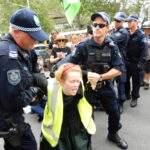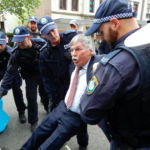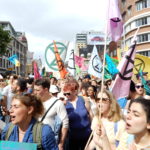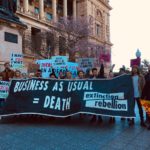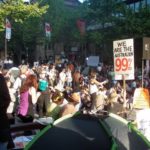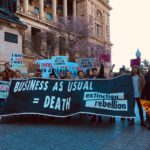“My Moral Duty to Rebel”: An Interview With Scientist Dr Martin Wolterding

On addressing the constituency at the podium, Australian politicians tend to shrug off climate protesters as part of the lunatic fringe. However, behind closed doors, those in government hold grave concerns about the implications of rising climate consciousness.
This can be seen in the fact that since Extinction Rebellion’s spring protests kicked off on 7 October, authorities have had security stationed at major bridges out of concern that activists might take it upon themselves to block traffic, in a similar manner to what they did at Sydney’s Broadway.
On the first day of the Spring Rebellion, around 500 Extinction Rebellion (XR) demonstrators marched through Sydney CBD streets, calling for climate justice and disrupting the normal flow of traffic along the major road artery that’s Broadway for over an hour.
And the fear government harbours towards climate protesters was further evidenced by the overly aggressive tactics that NSW police officers used in dragging activists off the street. Indeed, wristlocks being applied to nonviolent elderly protesters might be described as excessive force.
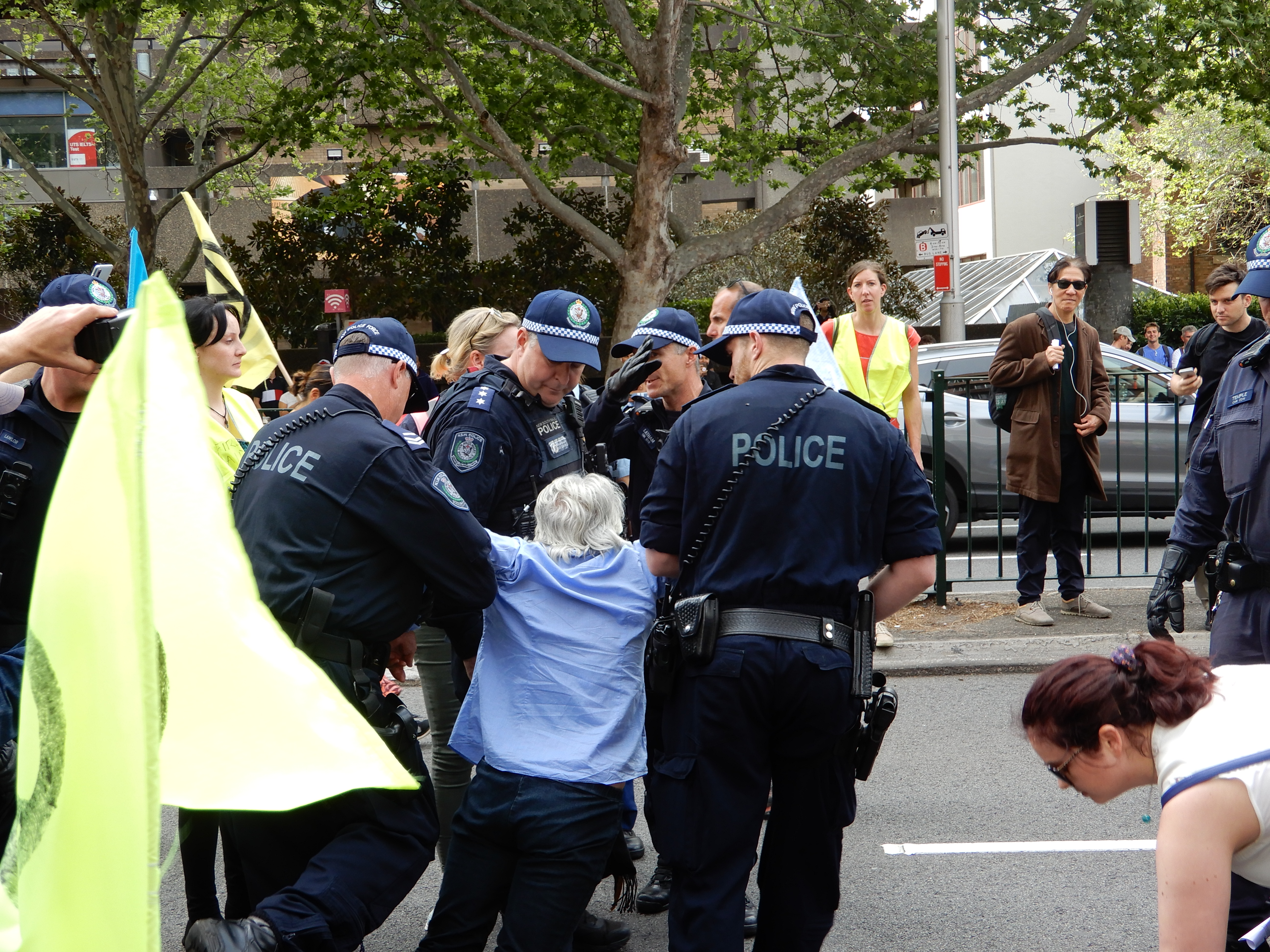
The science is terrifying
Following the arrest of 38 XR members at the 7 October protest in Sydney’s CBD, homepages of media outlets lit up with images of 75-year-old environmental scientist Dr Martin Wolterding being dragged away by two officers trained in dealing with riots.
Dr Wolterding has been involved in environmental science and activism since the 1960s. Today, he’s employed as a Western Sydney University biodiversity laboratory supervisor. And having worked as a biology and ecology lecturer around the globe, he’s very well placed to make a call on climate.
In July this year, he joined Extinction Rebellion “as it seemed to be the only fit-for-the-environmental-emergency organisation” to come along in his lifetime. And last week, he put his liberty on the line for the environment and received a wristlock and bruising for his efforts.
Dr Wolterding is no lone wolf either. Last month, a group of Australian academics issued an open letter pledging their support to Extinction Rebellion, and declared they “can no longer tolerate the failure of the Australian government”.
Bail conditions tossed out
Another glaring sign that authorities are taking the mobilisation of climate activists as a serious threat are the extreme bail conditions police imposed. These included bans on associating with XR members and entering the CBD, which are similar in scope to consorting laws aimed at bikie gangs.
Following his arrest, former Australian Greens Senator Scott Ludlam attended the Downing Centre, where a magistrate threw out the strict bail conditions that had been applied to the now Extinction Rebellion activist.
Sydney Criminal Lawyers spoke to Dr Wolterding about why he put himself on the line, the science that politicians have been ignoring for the last 30 years, and his plans to continue with the disruption of business as usual in the name of the planet.
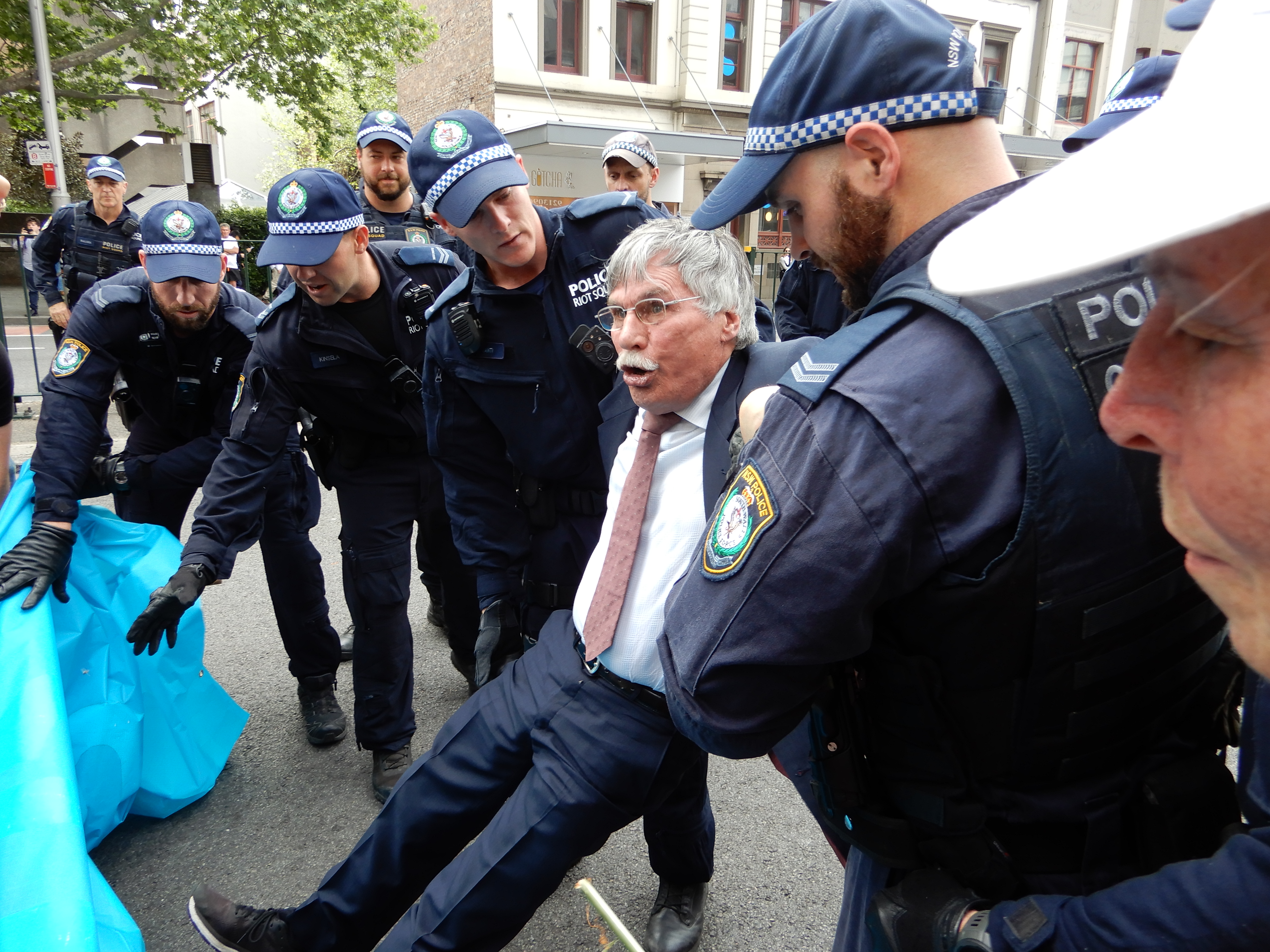
Firstly, you were amongst the dozens Extinction Rebellion protesters, who were arrested at the Sydney climate protest on Broadway last week. Dr Wolterding, why would you say you risked your liberty like that?
I’ve studied – and understand clearly – the dire nature of the environmental emergency. And I’m in a good position to do something about it.
As I no longer have a family that depends on me, and being semi-retired, I have the luxury of time. I’ve lived a wonderful life and to be blunt, now I’m expendable.
Many have complained about the heavy-handedness of NSW police officers when taking nonviolent demonstrators like yourself into custody last week.
How would you describe your experience? And were you subjected to those extreme bail conditions?
Yes, the police officers who arrested us were far more brutal than necessary. The default use of inflicting intense pain to affect compliance was utterly inappropriate when applied to nonviolent, passive men and women.
I simply cannot fathom why the order was given to treat elderly people in the same manner as they would a young man.
In the police processing van, my left forearm and wrist began to swell and discolour making it obvious that I had been injured by the wristlock imposed during my arrest.
Mindful of their duty of care, the police decided to curtail my arrest processing and an ambulance was dispatched to take me to the hospital.
I never reached the processing stage where bail conditions were imposed. Nor, did I have to spend the night in stinking, overcrowded gaol cells, deprived of food and verbally abused by guards in order to have draconian bail conditions reviewed by a magistrate.
All in all, I believe I was luckier than my fellow arrestees.
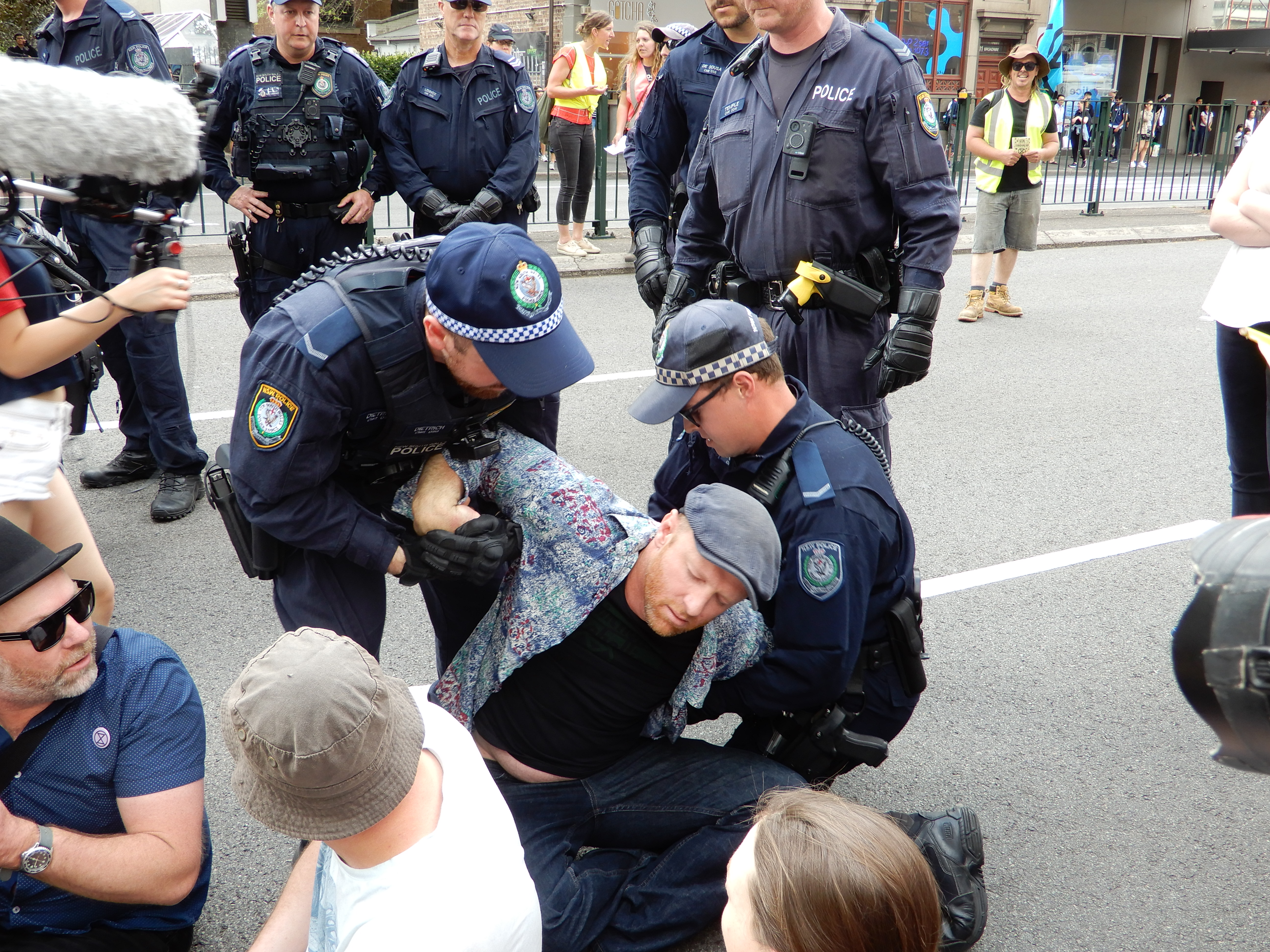
Back to the reason behind your protesting, in your understanding, as an environmental scientist, just how dire is the climate emergency?
We live in a truly unique time in human history. Not since the eruption of Mount Toba – 72,000 years ago – has the survival of the human race been at risk.
While the real possibility of human extinction sounds like hyperbole, it is a cold, hard, scientific conclusion.
Today, we have a few short years at most, to reverse our ever-increasing climatic and environmental impact or reach the point when it’s too late. Then, whatever we try to do, we and millions of other species, will be wiped from this earth.
And as a scientist, how do you explain to laypeople why more carbon emissions being released into the atmosphere is so detrimental?
Think of the elaborate protection that the astronauts wore when they walked on the surface of moon. They were surrounded by a cumbersome shell that protected their bodies from the minus 173 degrees Celsius at night and the 100 degrees Celsius during the lunar day.
The tissue thin layer that is Earth’s atmosphere provides the same protection as the astronaut’s suite.
Gasses in the upper atmosphere absorb harmful UV light from the sun, while allowing much of the sun’s energy to reach and warm the earth.
In turn, the warmed earth radiates much of its heat back into space retaining just enough to keep our world within that narrow range of temperatures, in which life can flourish.
However, since the industrial revolution, when we began to burn fossil fuels, we have been changing the composition of the atmosphere by adding carbon dioxide (CO2).
This change has affected the delicate balance of the earth. CO2 and other greenhouse gasses – like methane – absorb some of the heat normally radiated back into space and trap it, warming the globe.
We have already warmed the earth on average by 1.1 degrees Celsius above pre-industrial levels.
This may not sound like much, but in a complex, self-regulating, dynamic system like the earth, 1.1 degrees is triggering major climatic change.
Meanwhile, every year, we add ever more CO2 to the atmosphere.
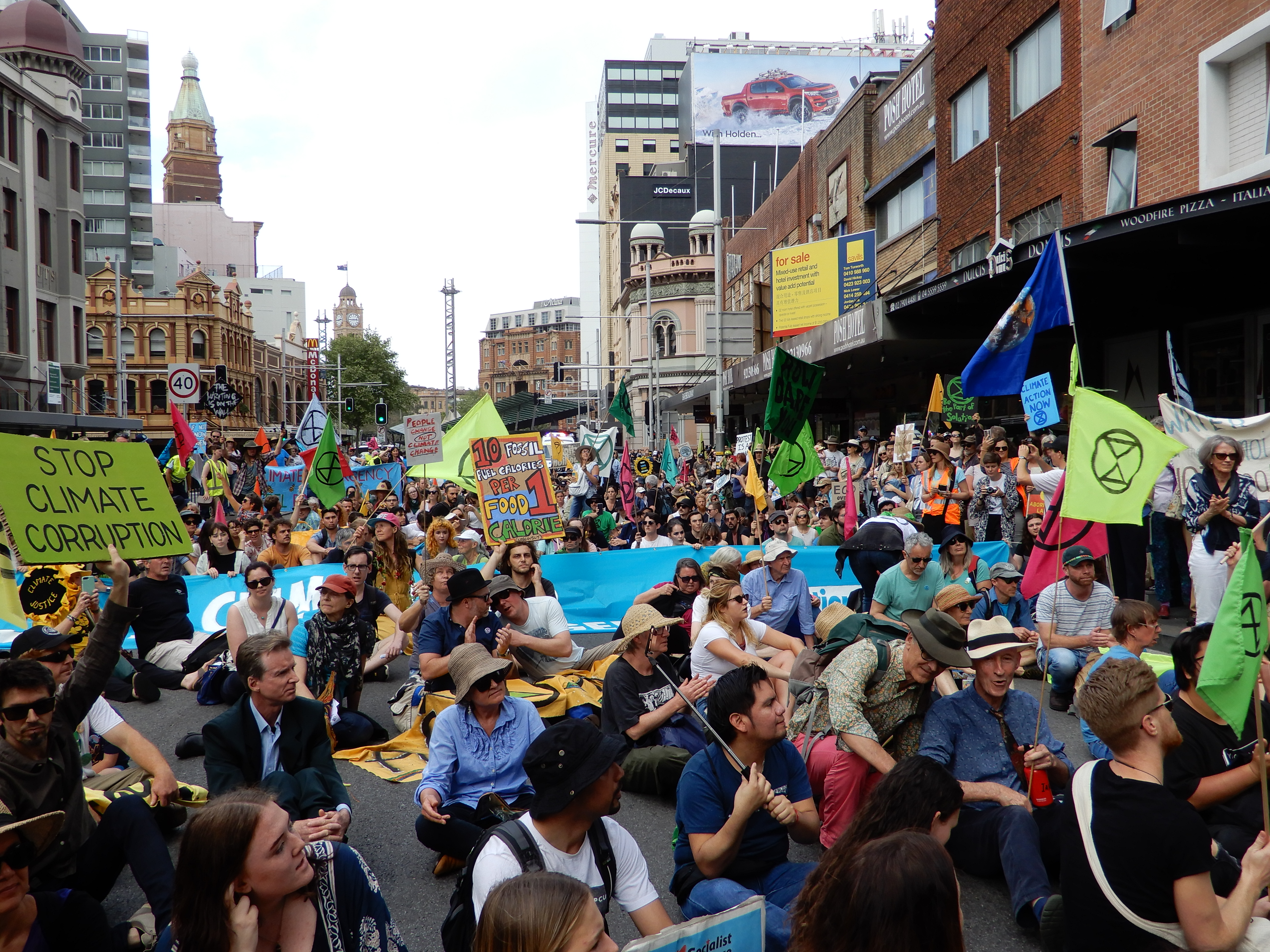
Another prominent feature of the climate conversation are feedback loops. Can you clarify what they are, and why they’re so important?
In this context, a feedback loop is an environmental change, caused by global warming that in turn accelerates further warming.
The polar icecaps with their vast areas of snow and ice, reflect much of the sun’s energy back into space helping to cool the earth.
With global warming there has been a substantial decline in ice cover in the Arctic reducing this cooling effect.
While there has been an increase in ice cover in the Antarctic, NASA scientists report the rate of this increase to be lower than the decrease in the Arctic.
Moreover, the Arctic thaw is beginning to trigger another feedback loop. One quarter of the entire northern hemisphere is permanently frozen – 22.8 million square kilometres.
As the Arctic warms this permafrost begins to melt. The organic matter in the soil – frozen for hundreds of thousands of years – starts to decompose releasing ancient CO2 and methane into the air.
Methane is 84 times more powerful as a greenhouse gas than CO2. This additional CO2 and methane speed up the rate of warming.
Much has been said about the Morrison government’s lack of action on climate. What do you think about the track record of the government?
If government’s role is to protect its residents by acting as impartial umpire, and enforcing the societal rules against assault, murder, robbery, and fraud, then the Australian government – under both major parties – has abandoned its role.
Neither Labor nor the Liberal National parties when in power have acted impartially.
An open letter signed by leading academics around Australia declared, “When a government wilfully abrogates its responsibility to protect its citizens from harm and secure the future for generations to come, it has failed in its most essential duty of stewardship.”
Australian governments over the past 20 to 30 years have enacted laws and regulations, which overtly favour the resource industries over the long-term well-being of the Australian people.
The current government environmental target of reducing emissions by 26 to 28 percent below 2005 levels by 2030 would result – if globally applied – to a global warming of 3 to 4 degrees Celsius.
The consensus of climate scientists and the Intergovernmental Panel on Climate Change is clear that it’s unlikely that the human race would survive a rise of 4 degrees.
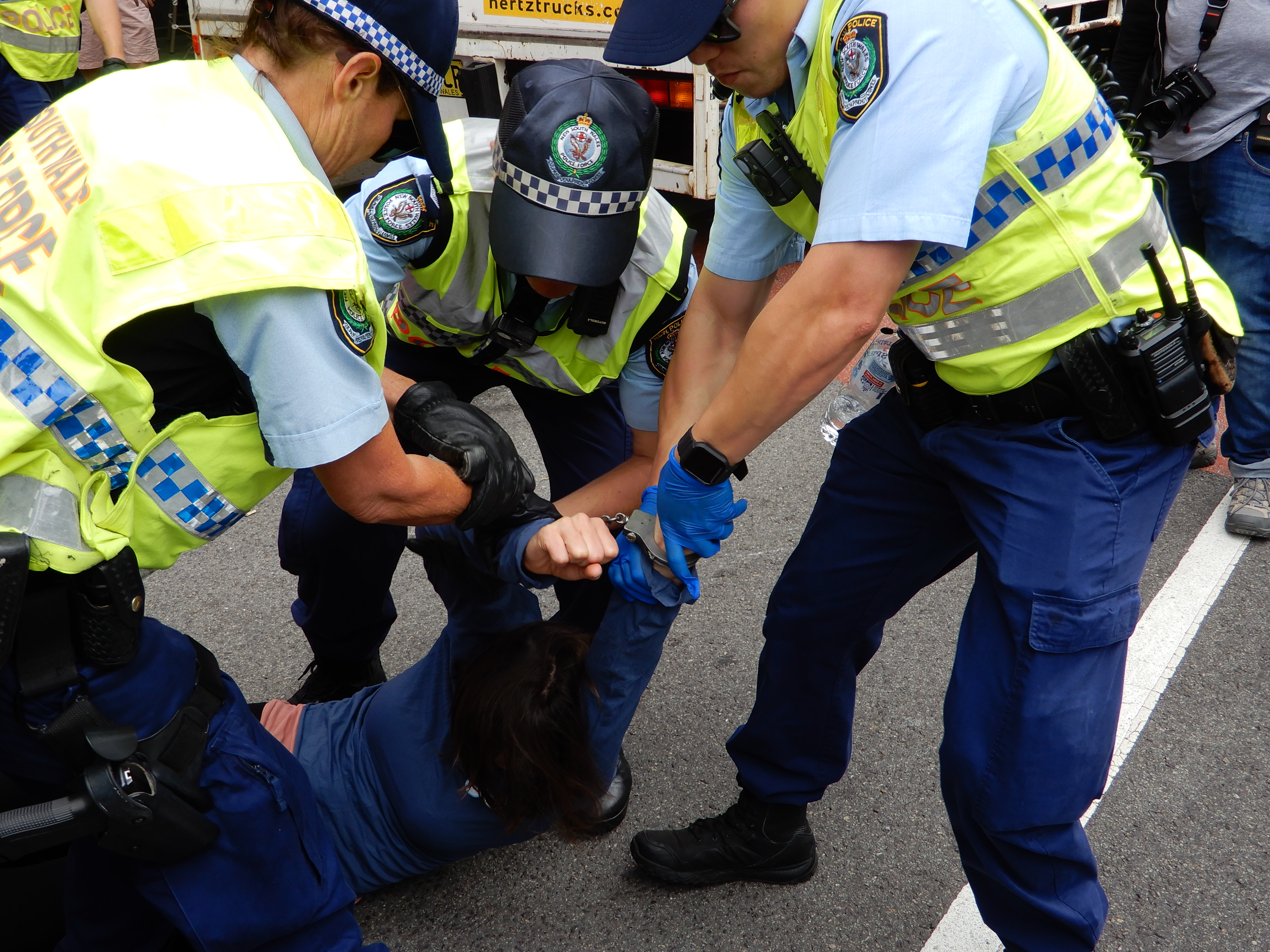
And lastly, Dr Wolterding, at the age of 75, you were dragged off the road and arrested by police for peacefully protesting. Is this going to stop you from taking part in further demonstrations?
I’m angry. I’m angry that my voice and the voices of thousands of other scientists have been ignored over the past 30 years.
I’m angry that unless this suicidal system is overthrown, my grandchildren’s adult lives will be short, and filled with suffering and death.
The social contract given those who govern us has been broken. Therefore, it’s not only my right, but my moral duty to rebel to defend life itself.
So, I channel my anger into an adamantine determination, to take whatever risk necessary to change this broken system. And hopefully, to create a system where future generations have a reasonable chance to live long, healthy, productive lives.
In a way Kerri-Anne Kennerley is correct when she suggested that motorists should use me “as a speed bump”. She’s right because the only way to stop me in this campaign is to kill me.


